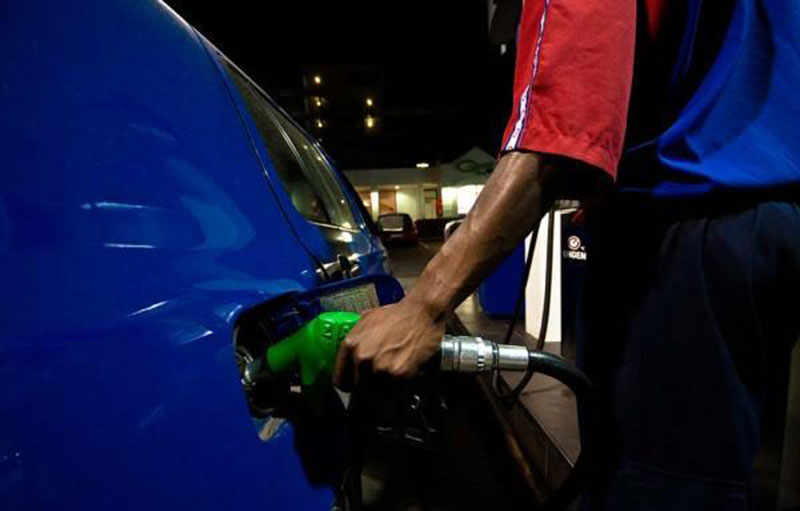
One year after the Federal Government banned the importation of dirty fuels into the country as part of efforts to curb the environmental impact of vehicle emissions, the country has yet to enforce the ban.
Imagine your Ad placed here

One year after the Federal Government banned the importation of dirty fuels into the country as part of efforts to curb the environmental impact of vehicle emissions, the country has yet to enforce the ban.
Imagine your Ad placed here
The enforcement of the ban failed to come into effect on July 1, 2017 as announced in December 2016 by the then Minister of Environment, Mrs. Amina Mohammed.
On December 1, 2016 in Abuja, Nigeria, Benin, Togo, Ghana and Cote d’Ivoire agreed to ban the importation of Europe’s dirty fuels, limiting sulphur in fuels from 3,000 parts per million to 50 ppm.
“From July 1, 2017, we will commence the enforcement of the 50ppm sulphur in fuel. And the July deadline is on all fuels, your diesel, petrol and kerosene. Everybody knows that this is going to take some efforts, which is why we gave the six months’ notice. What is more important is that we are working with the refineries on a long-term approach,” Mohammed had said.
According to the Standards Organisation of Nigeria, the case for 100ppm was made for the 2015/2016 fuel specifications, but the levels were maintained at 3,000ppm for Automotive Gas Oil (diesel); 1,000ppm for the Premium Motor Spirit (petrol); and 1,000ppm for household kerosene.
Compared to other parts of the world, such as Europe and North America, fuel quality in many African countries, including Nigeria, remains very poor.
European standards for fuel quality include Euro IV (50ppm for petrol and diesel) and Euro V (10ppm for both).
The Vice President/Head of Energy Research, Ecobank, Mr. Dolapo Oni, said in a telephone interview that the country had not resolved the issue of ensuring adequate supply of even the high sulphur fuel.
In December last year, the country saw a re-emergence of long petrol queues across the country caused largely by supply shortfall.
Oni said, “Once you bring in the low sulphur fuel, you also have to pay a higher price for it. So, we need to create a market mechanism that allows us to reflect that price. We don’t have that market mechanism yet; so once that is done, then we can make importation of low sulphur fuel possible.
“It is deregulation that we need to really allow this to happen or a proper price modulation system. If we had a proper price modulation system where prices can be changed to reflect market trends regularly, then we could do that. But deregulation would mean that the market will just do it automatically by itself.”
The Managing Director, Rainoil Limited, Mr. Gabriel Ogbechie, in September last year, said the Federal Government should deregulate fuel prices to enable it to increase quality without shouldering the cost.
Ogbechie was quoted by Reuters to have said at the Platts refining conference in Brussels that the nation’s efforts to cut sulphur levels in its fuel imports were unlikely to succeed last year.
He said as long as the government capped petrol prices, it would not opt for higher quality fuel that would cost $10-$20 more per tonne.
“I don’t see that happening. That’s an extra $300,000 to $600,000 per cargo. Is the government ready to absorb that cost? The answer today is no,” he added.
The Rainoil MD noted that with elections coming in early 2019, the deregulation of fuel prices was also unlikely.
According to the United Nations Environment Programme, the move to ban dirty fuel imports by Nigeria and others will dramatically reduce vehicle emissions and help more than 250 million people to breathe safer and cleaner air.
It noted that a report by Public Eye in September 2016 exposed how European trading companies were exploiting the weak regulatory standards in West African countries, allowing for the exportation of fuels with sulphur levels up to 300 times higher than was permitted in Europe.
In late October last year, the Deputy Minister of Energy, Ghana, Dr. Mohammed Adam, at the 11th Oil Trading and Logistics Expo in Lagos, urged Nigeria to bring the importation of dirty fuels to an end and deregulate the price of petrol.
Adam said, “Nigeria, for example, has deregulated the pricing of gas oil (diesel) while steps are far advanced for gasoline (petrol) prices to be deregulated. Ghana has, largely, fully deregulated the industry with the exception of residual fuel oil and premix fuel, which are still being regulated by government. Elsewhere, Kenya and South Africa have deregulated their pricing regimes which have catapulted the industry to that of a market-driven one.
For more Logistics News, Follow us on TWITTER Follow us on FACEBOOK
“I wish to call on the Nigerian government to make efforts at reaching full price deregulation given that it is the largest market for products, and any failure on its part can distort the sub-regional market we all envisage.”
The Punch